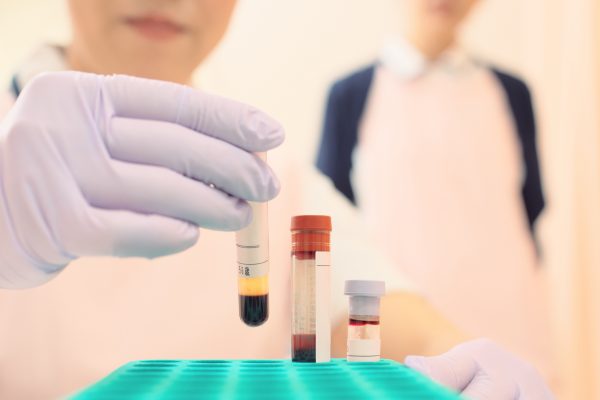
Results of phase 3 clinical trial of gene therapy for haemophilia A patients were recently published in the New England Journal of Medicine. The study demonstrates the efficacy and safety of valoctocogene roxaparvovec (AAV5-hFVIII-SQ), an adeno-associated virus 5 (AAV5)-based gene-therapy vector expressing coagulation factor VIII under a liver-selective promoter.
Haemophilia is a genetic disorder where blood does not clot normally. It is caused due to absence or malfunction of the coagulation factor known as factor VIII (FVIII). The current treatment involves regular infusion of the FVIII protein. Still, this does not prevent the disease or reduce mortality. There are ongoing efforts to use AAV-based gene therapy approaches to re-express coagulation factor VIII.
An open-label, single-group, multicenter, phase 3 study enrolled 134 severe haemophilia patients to evaluate the efficacy and safety of valoctocogene roxaparvovec. The participants received a single infusion of 6×1013 vector genomes of valoctocogene roxaparvovec per kilogram of body weight. The study’s primary endpoint was the change from baseline in factor VIII activity during week 49-52 weeks post-infusion. The study’s secondary endpoint was defined as the change in annualised factor VIII concentrate use and bleeding rates.
The patients receiving valoctocogene roxaparvovec gene therapy showed an increase in mean factor VIII activity by 41.9 IU per deciliter (95% confidence interval [CI], 34.1 to 49.7; P<0.001; median change, 22.9 IU per deciliter; interquartile range, 10.9 to 61.3) during weeks 49-52 post-infusion. One hundred twelve patients showed a decrease in the mean annualised rates of factor VIII concentrate use (98.6%) and treated bleeding (83.8%) four weeks after infusion (P<0.001). At least one treatment-related adverse event (ARE) was seen in all the patients, among whom 22 experienced serious AREs. The AREs reported included Elevations in alanine aminotransferase levels (85.8%), headache (38.1%), nausea (37.3%), and elevation in the levels of aspartate aminotransferase levels (35.1%). Thrombosis or the appearance of factor VIII inhibitors was not seen in any participants.
The finding of the phase-III study demonstrates that valoctocogene roxaparvovec treatment effectively elevated factor VIII levels and reduced bleeding and factor VIII concentrate usage.
Reference